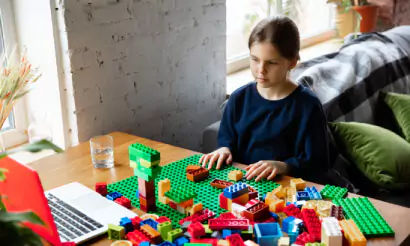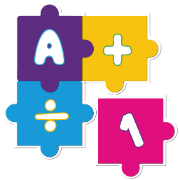Online Activities for Students
You, as a parent, are in the best position to understand the magnitude of the changes that have occurred in educational practices over the last year. Even if our conditions continue to evolve, online education is still a possibility for a significant number of students and youngsters who spend a significant amount of time on the internet.



Importance of online activities for students
- Even though children and young people use the online platform as a form of entertainment, children may benefit from certain online activities with the assistance and direction of their parents by developing their creative potential, improving their ability to think strategically, and strengthening their connections with their peers.
- Additionally, it may assist young students to acquire tenacity to attain objectives, build resilience, and enhance their communication skills, particularly when it comes to participating in online multiplayer video games, quizzes, cognitive activities, etc.
- Players participating in online activities such as immersive educational games that call on abilities in strategy and problem-solving to triumph need to be able to recall and take in a great deal of information. Playing these kinds of games on a regular basis may assist young players develop both their short-term and long-term memories. Additionally, it's possible that they help the brain digest information more quickly. In addition, players' imaginations are sparked by video games, which assists them in maintaining concentration on certain activities and develops their endurance to complete a job
- Students and kids need to pay close attention to detail and be able to respond quickly in order to succeed in educational games and entertaining activities that demand them to hunt for goods while fending off other opponents. Studies have indicated that young players might benefit from this form of gaming since it helps them improve their ability to juggle many tasks at once. The more difficult online multiplayer games assist players learn how to be strategic and analytical in order to evaluate the potential for risk and return. Young players need to be able to respond swiftly to changes in the game in order to succeed at these sports. Children may benefit from playing these kinds of video games because the skills they learn can be used in the real world, particularly in careers that require problem-solving abilities, analytical reasoning, and strategic planning.
Scavenger Hunty
This game is so easy that all you have to do is come up with an idea for an item that the kids should go find and then dash back to the screen to share it with everyone. The game is called Scavenger Hunt This may be used to focus on a specific ability with younger children, such as identifying an object of a given hue, a number, or an item that represents a season. This might be something that makes you laugh, a present that you'll always love, or something that provides you comfort for older children. These are all examples of objects that can be used to demonstrate different aspects of a person's personality. You may utilize these objects to generate chances for expansion, such as writing an autobiographical story about an item that offers you comfort and describing how you came to have that item. Making it one of the preferred online activities for students which is fun and informative.
Would You Rather?
Have the students respond to a series of Would You Rather? questions by writing their responses on a whiteboard, in the chat function, or simply on a sheet of blank paper. There are a ton of classic question lists available for usage on the internet; however, you should be careful to choose questions that are suitable for the target audience's age range. These also make for very good issues to discuss in a discussion. Build a Story is a fun game that has its own personality and develops on its own over time. Begin with a small number of words, and then invite each kid to contribute three more. By typing out the narrative, you can keep track of where the story is going and then, after everyone has had a chance to contribute, you can display the full story on the screen for everyone to look at and laugh at.
Active Notes
Encourage students to take notes actively by providing them with markers and allowing them to do so in whatever format they want while you are speaking or reviewing newly introduced subjects. They should be actively taking notes and/or sketching while you are talking. They can draw drawings of what you speak about, make a bulleted list, build a word web, or doodle; the important thing is that they should be doing one of these things. Then, at the very end, have them discuss what they learned. You may utilize this as a breakout exercise for students to express their reasoning behind the method in that they took notes in smaller groups.This game is a ton of fun and can be easily modified to accommodate players of varying ages.
Scattergories
Select a letter and provide students with a list of categories (such as foods, names, places, animals, and so on), then challenge them to think of as many responses as they can for that letter. They have the option of doing so on a whiteboard, using paper and ink, or by making use of the chat function. As a way to break the ice, go around the room a few times. Students should be given a few minutes for each round, and they should be asked to maintain a record of any responses that are unique. On websites such as Teachers Pay Teachers, you can purchase Zoom Scattergories that are already set up and ready to use.
Who Said It?
In the days leading up to a meeting with the class, you should distribute a questionnaire that contains a number of entertaining questions. Inform them that you may share these replies, so think of something clever to say and avoid disclosing any personal information. The next step is to read over each question and choose only one response to add to the newly created list, which you will then show to the class. Have them try to identify the student who provided each response. When you reveal who said it, you should offer that student the opportunity to provide a brief explanation (if they so want) on their response.
Online Pictionary
The popular game of Pictionary is recreated in the form of an online game called Virtual Pictionary. In this version of the game, one player depicts a word while the other players try to guess what the word is. Your class/ virtual teammates should be divided into two teams, and one of the teams should use the private chat option in Zoom to send the word to the artist. The artist may then utilize the screen sharing capabilities of the video conferencing software to show the other members of the team their artwork as they try to guess what it is. The game Virtual Pictionary may be used in the classroom to help increase students' creative abilities and vocabulary.
Virtual Quizzes
The students in your class or your kids online may have fun while being tested on their knowledge of a certain subject by using Virtual Trivia. To begin, compile a collection of trivia questions and their corresponding answers. Then, split the class into teams, who will compete against one another to see which can properly answer the most questions in the shortest amount of time. A thrilling method to test whether or not the students in your class have recalled the necessary information makes the online game Virtual Trivia an excellent choice for use in the classroom.
Puzzles Relating to Geography
Geography Puzzles is another game that may be played in geography class. The game assesses the class's overall knowledge of the globe. Give each pupil a copy of a blank globe map to take notes on. The next step is to instruct pupils to fill in the map with as much detail and precision as they can muster. Teachers may also partner students together and provide a prize to the group that completes filling out their map first so that students can experience the benefits of working together on Geography Puzzles.
Ending Summary
Children can benefit from participating in online activities such as educational entertainment and learning with the support and guidance of their parents. These activities help children develop their creativity, strengthen their relationships with friends, and improve their ability to think strategically. Additionally, it may assist young students acquire tenacity to attain objectives, build resilience, and enhance their communication skills. The more difficult online activities, such as games and cognitive challenges, instruct users in the skills necessary to be strategic and analytical in order to evaluate potential benefits and drawbacks. Young participants will need to be able to respond swiftly to changes in the game while participating in these activities. Children may benefit from playing these kinds of video games because the skills they learn can be used in the real world, particularly in careers that require problem-solving abilities, analytical reasoning, and strategic planning.



.png)
